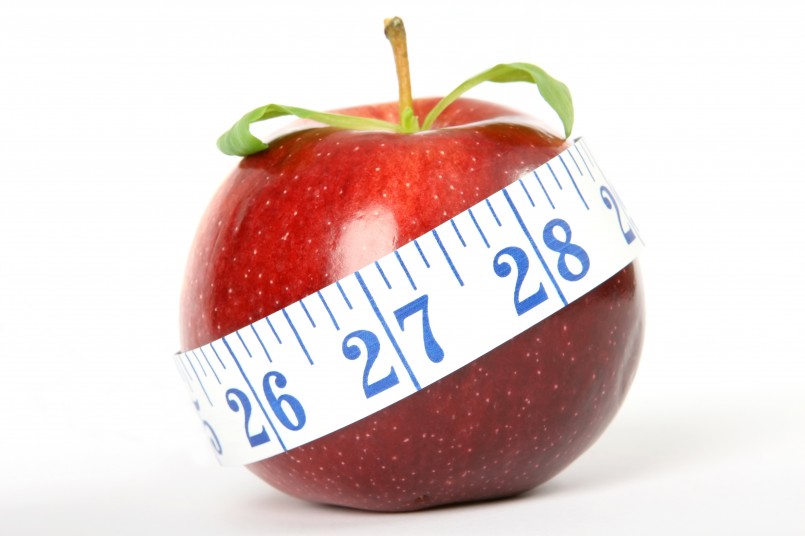
There are so many mixed messages about nutrition in the fitness and health industry; what the best diet is for summer or what the best diet is to eat for weight loss, healing cancer, colds, migraines, hormones, and etc. It is enough to drive any person crazy with frustrations. There are also those who wonder, are all calories created equal for weight loss? Meaning that if you ate an 800 calorie McDonalds meal on a daily basis versus eating 800 calories of an organic grass fed steak or wild caught fish with vegetables would you lose weight since it’s technically the same calorie count. No, it’s definitely not the same.
So, do calories really count? Well let’s think about your metabolism for a minute. Your body needs certain nutrients in order for it to thrive and without them you’ll end up in a diseased state. A great example of this is from someone I know of in my own family who’s doctors thought he must have cancer because his health was so bad. They ran a myriad of tests on him to finally figure out that he never ate vegetables. He ate so poorly with so much fast food that the doctors thought he had cancer. Incredible what happens to your metabolic condition if not given the right nutrients from good quality foods. So are all calories create equal for weight loss?? I’ll reiterate a solid no, they are not. Not for weight loss nor for overall health either. To lose weight you must heal the body; your metabolism, gut flora, your metabolic condition must improve, better sleep quality, mindfulness, decrease stress, eat good quality foods that are right for your body. So, what are those good quality foods you may wonder?
Of course there are also some widely held and extreme beliefs about this topic especially, by those who subscribe to being Vegan, Vegetarian, Paleo, Gluten-free and dairy-free or any type of diet it seems. Why be extreme though? What happened to balance and moderation? Extreme dieters tend to hold onto their eating habits as if it is some kind of cult not veering off for even one meal for fear of death by guilt. Does this not remind you at all of how extremely religious people hold onto their beliefs and judge others for not being the same saying those who are unbelievers are going to hell just because they aren’t of the same Faith? It is all ridiculous. Food is just food and it is not a religion nor should it give you nightmares about having a guilty association with eating a bit of dessert or to food shame yourself because of it. The truth is that it’s all relative and dependent on the individual person, situation, illness, athleticism, age, activity levels, stress and so much more because not every BODY is the same. It’s like plants, some need more water than others and some need more sun.
In this day and age I’d say we are at the beginning stages of learning more about the science of nutrition and healing. With that said, there doesn’t seem to be a lot of money that goes into studying how nutrition can help the healing process of various ailments and diseases at this time because, that would take money away from the billion dollar pharmaceutical industry that funds a lot of studies published. The Pharmaceutical companies would lose money if people were able to cure themselves with nutrition and lifestyle modifications. As it is there are a lot of studies that have shown how changing lifestyle and nutrition habits help most known ailments.
For now though just keep in mind that every ‘Body’ is different so there is no one size fits all. This is why there is so much confusion. People want a simple answer and solution to a complex issue. Not everyone is going to have the same caloric or micro-nutritional needs. Nutrition requirements can also change based on stress, age, exercise activity level, injury, ailments and or disease. Getting in tune with your body’s needs is crucial to understanding what works and what doesn’t. There is no way around it, you must instill certain healthy lifestyle habits and figure out what is best for your body through trial and error and at times with the help of a professional holistic practitioner who has studied nutrition. Sadly, doctors only have time for 1 course in their studies so don’t ask them unless they have studied more nutrition because of a sincere passion for it.
 As I said above calories do count though for a variety of reasons and it’s not all about weight loss or gain. Let’s look at it differently, think about food as energy and the foods you eat can either deplete your energy or give you energy. Similar to watering a plant, if you don’t water that plant it will die and, all plants require different degrees of water because they aren’t all the same.
As I said above calories do count though for a variety of reasons and it’s not all about weight loss or gain. Let’s look at it differently, think about food as energy and the foods you eat can either deplete your energy or give you energy. Similar to watering a plant, if you don’t water that plant it will die and, all plants require different degrees of water because they aren’t all the same.
So, if all you do is eat crappy protein bars and junky fast food you’ll most likely feel like poop even though you may have only eaten 1500 calories. Eventually you will end up with an energy deficiency and a health problem because you aren’t getting the vitamins and minerals your body needs to sustain itself properly. This is another reason why calories do count for weight loss and overall health. However, how many calories you need per meal will greatly depend on your activity levels, sleep, repair, injury and a myriad of other variables. That is why it isn’t enough to simply say just eat ‘X’ amount of calories per day and you’ll lose weight.
How your metabolism is functioning is another indicator of how you’ll lose or gain weight. I think the most important thing is to first ‘heal’ your gut if you are having any intestinal issues because that’s how you know if you’re healthy. Make sure it’s functioning efficiently with regular daily bowel movements, exercise moderately not extreme, get good quality sleep, de-stress with meditation or quiet time and you’ll see a noticeable positive change in your body’s composition. Calories do count just not exactly in the way most people think.